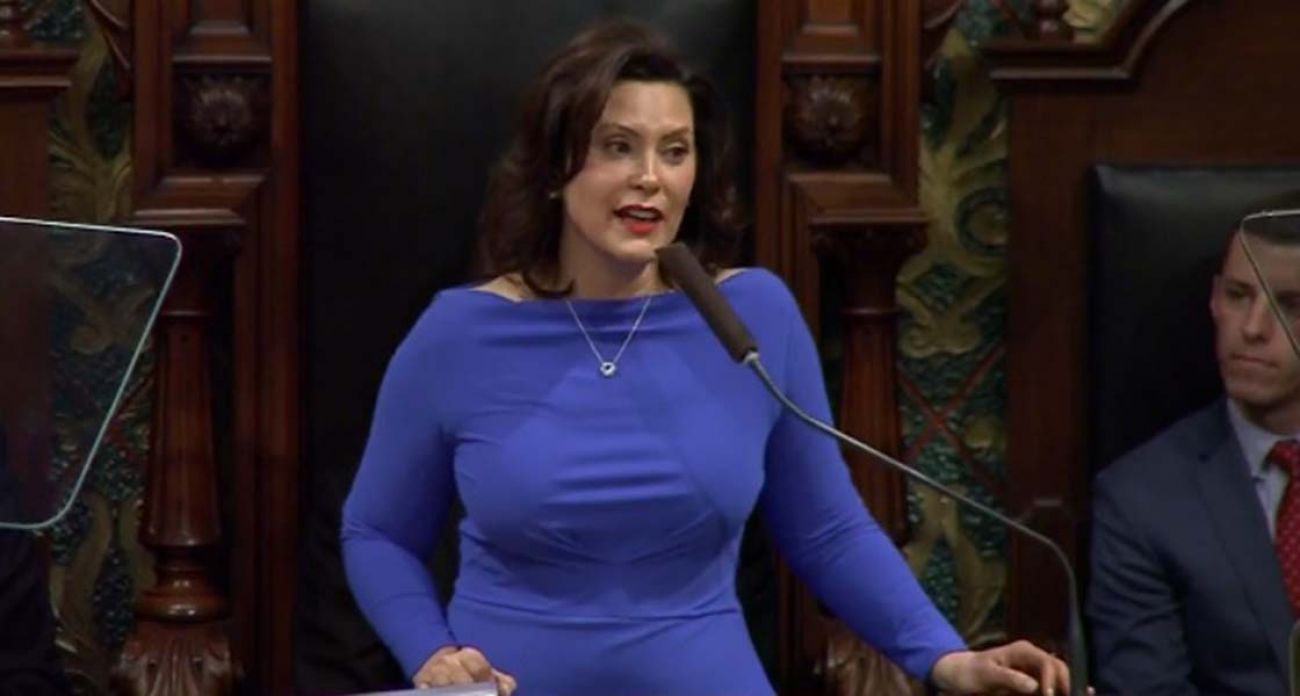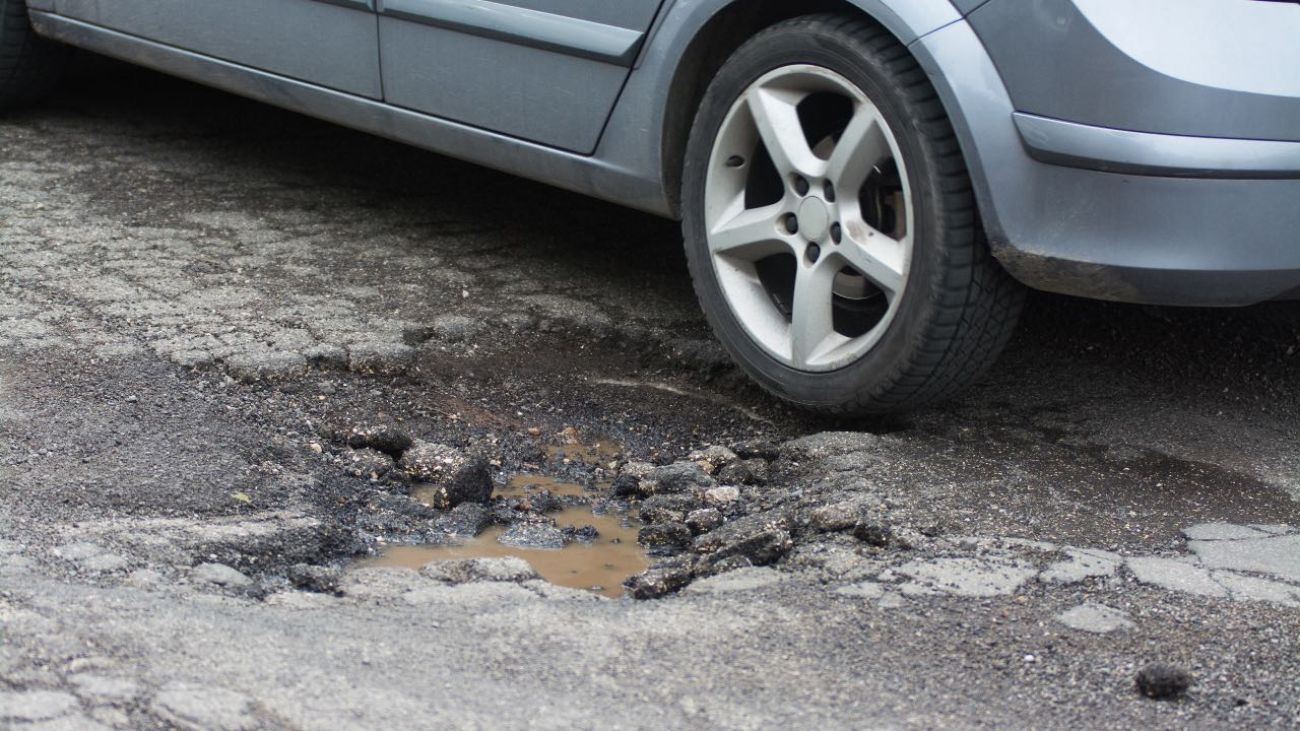For state address in 2020, Michigan Gov. Whitmer still working on 2019 goals

LANSING — As Michigan Gov. Gretchen Whitmer prepares to deliver her 2020 State of the State Address, a review by Bridge Magazine shows the first-term Democrat is still working to complete most of the goals she outlined in her 2019 speech.
Bold plans to fix crumbling roads, resolve an education funding “crisis,” close a talent gap and curb distracted driving failed, stalled or moved slowly during a months-long budget fight with the Republican-led Legislature in the state’s first year of newly divided government.
Whitmer’s second annual address, which she’s scheduled to deliver before a joint session of the House and Senate on Wednesday at 7 p.m., will "highlight the fundamental challenges our state is facing and outline the governor’s policy priorities for building a stronger Michigan," according to her office.
Many of those challenges are carryovers from last year. Below you’ll find some of the top goals she laid out in her 2019 address — some of which she’ll likely stress again on Wednesday:
Goal 1: Road Repairs

Let’s come together and pass a budget that actually fixes the damn roads!"
Whitmer's #FTDR hashtag was a hit on Twitter. But her plan to raise fuel taxes 45 cents per gallon flopped in Lansing, where it was never even introduced as legislation. GOP leaders ridiculed the proposed tax hike as too burdensome on ordinary residents but never publicly released concrete alternatives.
Fast forward a year and Whitmer is again poised to lay out a new road funding plan that is expected to include multiple elements instead of a single gas tax, an approach she is describing as a form of "triage" for the state’s aging infrastructure system.
Whitmer is expected to pursue bonding — borrowing money to pay for up front costs — an approach last used by previous Govs. John Engler and Jennifer Granholm. Trial balloons floated in Lansing suggests the administration may also look at the possibility of toll roads, which the state has limited options to use.
As a candidate in 2018, Whitmer said she would ask voters to approve general obligation bonds to fund road repairs if the Legislature was unwilling to act. But it appears she will instead ask the State Transportation Commission to authorize bonding, which would require neither legislative approval nor a public vote. The commission is set to meet Thursday morning in Lansing.
How much Whitmer will seek to borrow remains unclear, but she could butt up against a legal cap. Michigan law prohibits the state from pledging debt service payments that exceed 50 percent of constitutionally restricted transportation revenue from the prior year, and current State Transportation Commission policy sets a lower cap of 25 percent.
That puts the current annual cap at around $300 million. According to MDOT, the state is now paying about $118 million to service existing debt, leaving wiggle room of about about $182 million. That number that should continue to grow in future years as the state retires older debt.
Assuming a 25-year repayment schedule, the Whitmer adminisration could potentially sell some $3 billion in bonds. And it could do that in phases, providing a $1 billion influx in road funding for three consecutive years.
That’s still far short of the $2.5 billion a year Whitmer initially sought or the $4 billion annual need identified by former Gov. Rick Snyder’s 21st Century Infrastructure Commission.
Bonding can increase the total cost of a construction project, because the state has to pay back the borrowed funds with interest. But it makes sense to bond for major road or reconstruction projects that will last longer than the debt, said Michigan Chamber of Commerce President and CEO Rich Studley, who used a home mortgage analogy to make his point.
"If you're going to take out a home loan to go to dinner or the movies, that's a bad idea," he said. "But if you're going to take a home loan to buy a new home — a tangible asset of real value — that is a financially responsible thing to do."
It’s not clear if GOP leaders will try to stop Whitmer from issuing bonds — or if they can. House Senate Majority Leader Mike Shirkey, R-Clarklake, has called bonding his “last option.” House Speaker Lee Chatfield, R-Levering, wants to eliminate the sales tax on fuel before taking any other steps.
“We’re still paying on” debt service on the more than $1 billion in road bonds Engler issued between 1992 and 2000, said Senate Appropriations Chairman Jim Stamas, a Midland Republican. “I don’t think [bonding] is a long-term solution either. It’s more of a short-term fix, so probably not at the top of my list.”
Goal 2: School Funding

Our students are not broken. Our teachers are not broken. It’s our system that’s broken. We can’t fix it overnight. And greater investment alone won’t be enough. But we’re going to do it, because nearly 2 million kids are counting on us.”
Whitmer used her 2019 address to highlight a K-12 “funding crisis” she said undermines educators, weakens schools and hurts kids. She was foreshadowing the budget she would roll out three weeks later that called for the “biggest increase for school operations in a generation of students.”
Her budget proposed a $507 million bump for K-12 classrooms, including $272 million that would have moved the state toward a weighted funding formula providing additional resources for special education, academically at-risk, economically disadvantaged and career tech students.
Educators praised Whitmer’s spending plan, but it assumed added revenue from her gas tax hike, and when Republicans rejected that, lawmakers had less money to work with overall. They ended up boosting classroom spending by closer to $369 million, the bulk of which was plowed into the traditional per-pupil allowance instead of specialized needs.
The GOP-led Legislature also diverted $349 million in K-12 School Aid Fund dollars to public universities, a practice Whitmer had sought to end. The also governor wanted $84 million in new spending on the state’s Great Start Readiness preschool program but got $5 million instead.
Goal 3: Post-Secondary Degrees

I am announcing a new statewide goal of increasing the number of Michiganders between the ages of 16 and 64 with a post-secondary credential to 60 percent by 2030.
Whitmer remains committed to this long-term goal but has not made much short-term progress. One of the top legislative initiatives she first laid out in her 2019 SOTS — the Michigan Reconnect job retraining program — did not survive a bitter budget fight with the Republican-led Legislature.
The governor had requested $110 million in spending to launch Michigan Reconnect, which would provide a tuition-free path for adults to pursue an certificate or associate’s degree in an in-demand industry. She is expected to pursue funding for the program again this year, along with a separate Michigan Opportunity Scholarship program that would provide two years of free college to qualifying high school students.
Michigan voters support those policy pushes, according to recent polling commissioned by the Detroit Regional Chamber. Roughly 74 percent of Michigan voters support debt-free community college for adult retraining, according to the survey conducted by Glengariff Group, Inc. And 56 percent support free community college tuition for all.
A coalition of business groups backed the Michigan Reconnect proposal last year as a workforce training tool and remain optimistic the Legislature will approve funding this year.
“I don’t think there’s any real opposition to it,” said former Lt. Gov. Brian Calley, who now serves as president of the Small Business Association of Michigan. “I just think it got caught up in the overall budget conflict. But now that last year’s budget is put to bed and they’re contemplating a supplemental, I think it has a good shot.”
Goal 4: Environment

We’re going to make state government more efficient and more responsive to our environmental and public health challenges.”
Whitmer used 2019 to reshape state environmental efforts by creating the new Department of Environmental, Great Lakes and Energy. But EGLE’s takeoff was delayed by a partisan dispute over the governor’s attempt to abolish business-friendly oversight panels the Legislature had created in late 2018.
Water cleanup funding proved to be one of the most nonpartisan issues of the tumultuous budget cycle. Lawmakers approved Whitmer’s request for $120 million in drinking water protection and innovation initiatives, including nearly $38 million to implement new lead standards for drinking water and $25 million to address PFAS “forever chemicals” and other emerging contaminants.
The new department faced criticism in December when toxic “green ooze” was found seeping onto the shoulder of Interstate 696 in Madison Heights. State regulators had wrongly concluded in March that there was little risk known contaminants would spread from a nearby business.
Whitmer and EGLE Director Liesl Clark have taken a proactive approach to community engagement by appointing in April the state’s first public advocate for environmental justice and last week by creating a 21-member environmental justice advisory council.
The governor is expected to briefly discuss clean water issues again on Wednesday ahead of a special message she’ll likely deliver later in February or March.
Goal 5: LGBT Protections

If we want Michigan to be a home for opportunity . . . it should be opportunity for all, in all workplaces. We need to expand the Elliott-Larsen Civil Rights Act to include protections for our LGBT community.”
Whitmer began her term by signing an executive directive to strengthen anti-discrimination protections for gay and transgender state employees. That put the Michigan government “on the right side of history,” the governor said in her 2019 State of the State address, challenging the Legislature to pass similar protections for all LGBT residents.
But Republican leaders in the Michigan House and Senate have vocally opposed that push, expressing fears that new anti-discrimination protections could limit the religious freedoms of employers who oppose same-sex relationships.
Frustrated by inaction, a coalition of civil rights, business and political leaders are pursuing an LGBT rights petition drive that — if successful — could put a proposal before the Legislature this spring and before statewide voters in November. The Board of State Canvassers on Tuesday cleared the petition for circulation. Organizers with the Fair and Equal Michigan campaign plan to begin collecting this week and must collect at least 340,047 valid voter signatures within a 180-day window.
Goal 6: Distracted Drivers

It’s time for Michigan to join the 16 states that have passed hands-free laws to keep our roads and our kids safe. So let’s make it happen.”
Whitmer used her 2019 State of the State address to back legislation that would ban most cellphone use while driving unless the motorist utilizes hands-free technology. And she renewed that call this month amid lengthy legislative debate.
The Michigan House in December approved a modified version of the hands-free driving proposal that would apply only to drivers under the age of 18. But Whitmer continues to push for Michigan to become the 22nd state to ban hand-held phone use by all motorists.
"It is time for us to join that group," the governor said at a recent event in Detroit, according to the Associated Press.
Michigan has prohibited texting and driving since 2010, but enforcement is uneven and distracted driving remains a concern. Police around the state cited distracted drivers in more than 19,000 crashes in 2018, the most recent year for which data are available. More than 4,000 of those crashes involved a cellphone or other electronic device.
The hands-free driving proposal appears to be popular. More than 88 percent of Michigan voters support legislation that would prohibit holding cellphones while driving, according to the Glengariff poll, which has a margin of error of plus or minus 4 percentage points.
See what new members are saying about why they donated to Bridge Michigan:
- “In order for this information to be accurate and unbiased it must be underwritten by its readers, not by special interests.” - Larry S.
- “Not many other media sources report on the topics Bridge does.” - Susan B.
- “Your journalism is outstanding and rare these days.” - Mark S.
If you want to ensure the future of nonpartisan, nonprofit Michigan journalism, please become a member today. You, too, will be asked why you donated and maybe we'll feature your quote next time!




